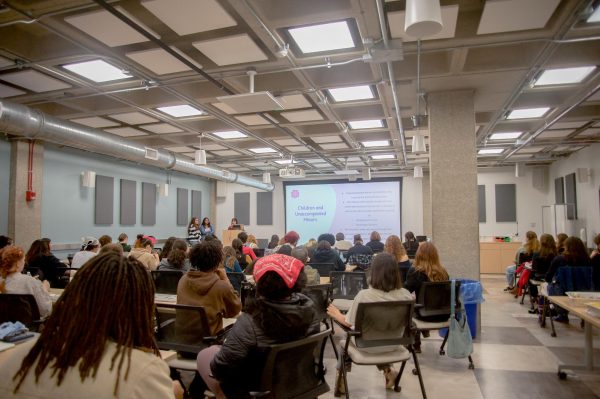Opinions Section Should Reflect Entire Community
Last May, I finally had the opportunity to stay on campus during Commencement week working as opinions editor for the Review’s Commencement issue. Admittedly, I was most excited to spend time with my friends who would be graduating and take part in all the Commencement week festivities. However, one of the coolest things that happened that week was also very unexpected.
During Commencement week, alumni are invited back for class reunions to connect with other Oberlin alumni and current students, reconvene with old professors, reminisce on old Oberlin memories, and help celebrate the newest class of alumni. Many of the alumni stay in old dormitories and relive their old Oberlin experiences. The Review hosted an open house to welcome back alumni who worked at the Review during their time here, and seeing them reconnect with their old office was absolutely heartwarming.
The alumni we met included former arts editors, photo editors, news editors, and production editors. Not all of them continued down the journalism path after graduating from Oberlin; however, several of them did and are now successful journalists for national publications.
Talking to these former Review staffers made me realize the deep tradition that is rooted in this paper. The office we have in the Burton basement has been the official Review office for decades. Some of our current wall hangings have been up for years, and there are tales behind them that we may never know. There’s no telling how long ago some of the quotes and other markings were scribbled on the office walls.
The old stories and memories the alumni recounted to us were not unlike our own. Two alumni who worked on the Review in the 1980s told us about the old dart board they had in the office that had a picture of Ronald Reagan in the center. We knew exactly what they were talking about. We still have a dartboard in the Review office, although the picture of Ronald Reagan has since been replaced. We talked about how the stereotypical reputations of the campus co-ops hasn’t changed a bit and tracked how traditions — such as the Harkness bike burning and the naked run through Mudd Center — have changed over the years, but still exist.
One thing we discussed in depth with the alumni were the hot topics during our respective years on campus. One of the alumni recounted a story that I had never heard before. She told us that in the ’80s, Oberlin hourly workers went on strike with suspicions that the administration had hired people to spy on them and report back to the administration about their overall productivity. Recently, the Academic and Administrative Program Review, and the recommendations resulting from, it has undeniably been a dominating topic at the Review. Although the situation is much different than the workers’ situation in the 80’s, AAPR has certainly brought up concerns about the treatment and the future of hourly workers at Oberlin.
These conversations made me truly realize the uniqueness of not only the Review, but of Oberlin in general. As a result of meeting the alumni, I began to think more about the history of the Review and the legacy it carries. Except for academic breaks, the Review has published continuously since 1874, making us one of the oldest college publications in the country. Looking now into the future, the Review is in the new, unique position of being the only newsroom in our town since the The Oberlin News Tribune closed its office last year. This is certainly not something that many other college newspapers around the country can claim.
Because of that, we must take this notion even more seriously now. The Review has shifted its editorial focus in recent years from covering national news to local news, both in Oberlin and statewide. However, we still have a long way to go in terms of engaging with non-student writers.
The Review is for anyone and everyone associated with Oberlin. While we do get plenty of submissions from current students in the Opinions section, submissions from professors, alumni, Oberlin workers, and residents of Oberlin are comparatively few and far between. Occasionally, we might receive letters from residents or professors about local issues such as upcoming town elections or town occurrences.
If the Review wants to live up to our assertion that we are the publication of record in Oberlin, the Opinions section should be representative of the thoughts and ideas of not only current Oberlin students, but of the people who live and work in Oberlin and of the alumni who have taken their Oberlin experiences out into the real world.
I want to hear from alumni about the ways that Oberlin is now different or the same from the Oberlin that they attended. I want to hear more about the shared experiences that Oberlin students across all years have in common. I want to hear what the townspeople of Oberlin think about hot button issues. I want to hear the cares and concerns of the people who actually live permanently in the town of Oberlin. If this paper is to claim that it represents the community of Oberlin, our Opinions section must amplify all the voices that constitute it, from alumni and townspeople to workers and professors.
The effort must be two-fold. As the Opinions editor, I must increase the scope of my outreach to include not only the perspectives of current students, but also the perspectives of other community members. However, I also encourage anyone reading this — current students, alumni, College employees, and townspeople alike — to submit to the Opinions section. Your perspectives are imperative to achieving the very mission of this paper: to be the publication of record for the town of Oberlin.


